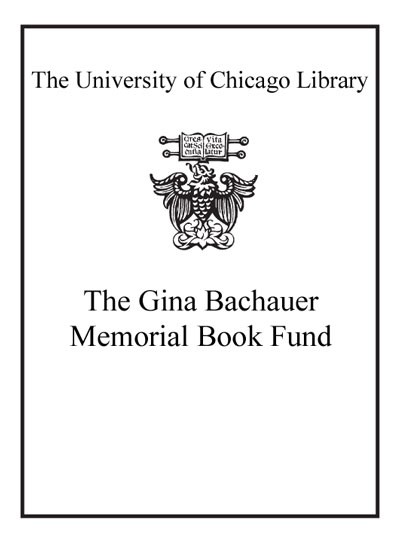Review by Booklist Review
The last time Anderson saw Brother Robert was in Memphis on the night of the second Joe Louis versus Max Schmeling fight. She was only 12 years old, but Johnson, whose stepfather was Anderson's father ("We weren't blood. We were family."), was a fixture in the household. Although it's been more than 80 years since Anderson last saw Johnson, her memories are vivid and personal, as she recalls a well-loved older sibling who entertained his family and community with his guitar and vast repertoire of songs. Johnson's famous 29 recordings play a tiny part in those memories, taking up a larger role following Johnson's death when white blues hunters descended upon the family, attempting to profit from Johnson's life, stealing rare photos, and making promises that were never kept. Anderson's account debunks myths about Johnson: he had a loving family; he was exposed to all kinds of popular music; he was not illiterate; and he did not go to the crossroads and sell his soul to the devil. Consider Anderson's heartfelt chronicle an earnest attempt to set the record straight.
From Booklist, Copyright (c) American Library Association. Used with permission.
Review by Publisher's Weekly Review
In conversation with journalist Lauterbach (Bluff City), Anderson offers vivid, personal glimpses of her stepbrother, legendary blues musician Robert Johnson (1911--1938), providing a colorful picture of the bluesman while attempting to debunk the myths surrounding him. In her earliest memory, an 18-year-old Johnson scoops up the three-year-old Anderson and carries her up the stairs to their new house in Memphis. She writes that her father taught the seven-year-old Johnson to play the guitar and recalls how much Johnson loved movies, especially Westerns, and that he wore a Stetson hat like his hero, actor Tom Mix. Anderson addresses the legend of Johnson selling his soul to the devil at the crossroads to become the world's greatest blues guitarist, arguing that the mythical event could never have taken place because her brother was a devout Baptist. Anderson also relays sordid stories of how two musicologists--Steve LaVere and Mack McCormick--swindled Anderson and her family out of Johnson's royalties, as well as family photos. She shares Johnson's deathbed prophecy ("I know that my Redeemer liveth and that He Will call me from the Grave"), and believes it "came true," since his reputation became bigger after his death. Anderson's earnest and enlightening memoir will please Johnson's listeners. (June)
(c) Copyright PWxyz, LLC. All rights reserved
Review by Library Journal Review
The legends about musician Robert Johnson (1911--38)--that he sold his soul to the devil in exchange for his formidable musical prowess--and his hallowed status as the greatest blues musician have eclipsed his actual life. Though Anderson, Johnson's stepsister and one of the few still living who knew him, doesn't fill in the lacuna surrounding Johnson's death--the family didn't find out that he'd died until weeks later--she does present a more detailed picture of an ambitious and meticulous artist surrounded by a tight-knit family and community. Anderson offers a heartrending account of the legal battle over the disposition of Johnson's estate and, specifically, the considerable royalties from both his own records and recordings of his songs by other artists--all of which had a devastating personal and financial effect on the family. Structured as a series of interviews between Anderson and coauthor Lauterbach (Beale Street Dynasty), this achingly intimate book puts Anderson's memories and feelings front and center. As for why Anderson is finally sharing her memories of Johnson: "I felt that I had to protect the real Brother Robert that I knew. He didn't get his abilities from God or the Devil. He made himself." VERDICT Cutting through the mythos that has long surrounded this iconic artist, this is an intriguing addition to the history of 20th-century blues.--Genevieve Williams, Pacific Lutheran Univ. Lib., Tacoma
(c) Copyright Library Journals LLC, a wholly owned subsidiary of Media Source, Inc. No redistribution permitted.
Review by Kirkus Book Review
Robert Johnson's nonagenarian stepsister shows sides of him that few have seen. Part of the aura of Johnson's eminence atop the blues world has been the mystery surrounding him. Much of his public presence has been established through a single photograph and some 29 recorded songs, which were cheaply recorded and weren't widely distributed until decades after his death (also shrouded in mystery). Adding to that aura was the legend that he had come to his blues mastery by selling his soul to the devil down at the "Crossroads"--the title of the song that would become much better known as performed by Eric Clapton. If the Johnson of myth and legend is somewhat bare-boned, this memoir, co-authored by Lauterbach, adds flesh and blood. Anderson was only 12 when the older stepbrother she knew as "Brother Robert" died, but her memory remains vivid and detailed. The bluesman she knew was no unschooled primitive but rather a crowd-pleasing showman who could mimic country favorites such as Gene Autry and Jimmie Rodgers. As Anderson recalls, "In addition to yodeling, [he] had other talents. He could play with both hands" and "could play spoons, too." The first part of the memoir recalls the brother she knew that others didn't while the second part details "how my family lost Brother Robert again," as exploiters took advantage of the family's photos and memories and turned Johnson into a popular commodity without sharing more than scraps with the family. The genealogy is occasionally confusing, and the late appearance of an unacknowledged son complicates the legal claim, but this memoir represents a valiant attempt to set the record straight and give Johnson's family their due. An illuminating portrait of an artist lost in the mists of history and mystery. (photos) Copyright (c) Kirkus Reviews, used with permission.
Copyright (c) Kirkus Reviews, used with permission.
Review by Booklist Review
Review by Publisher's Weekly Review
Review by Library Journal Review
Review by Kirkus Book Review

